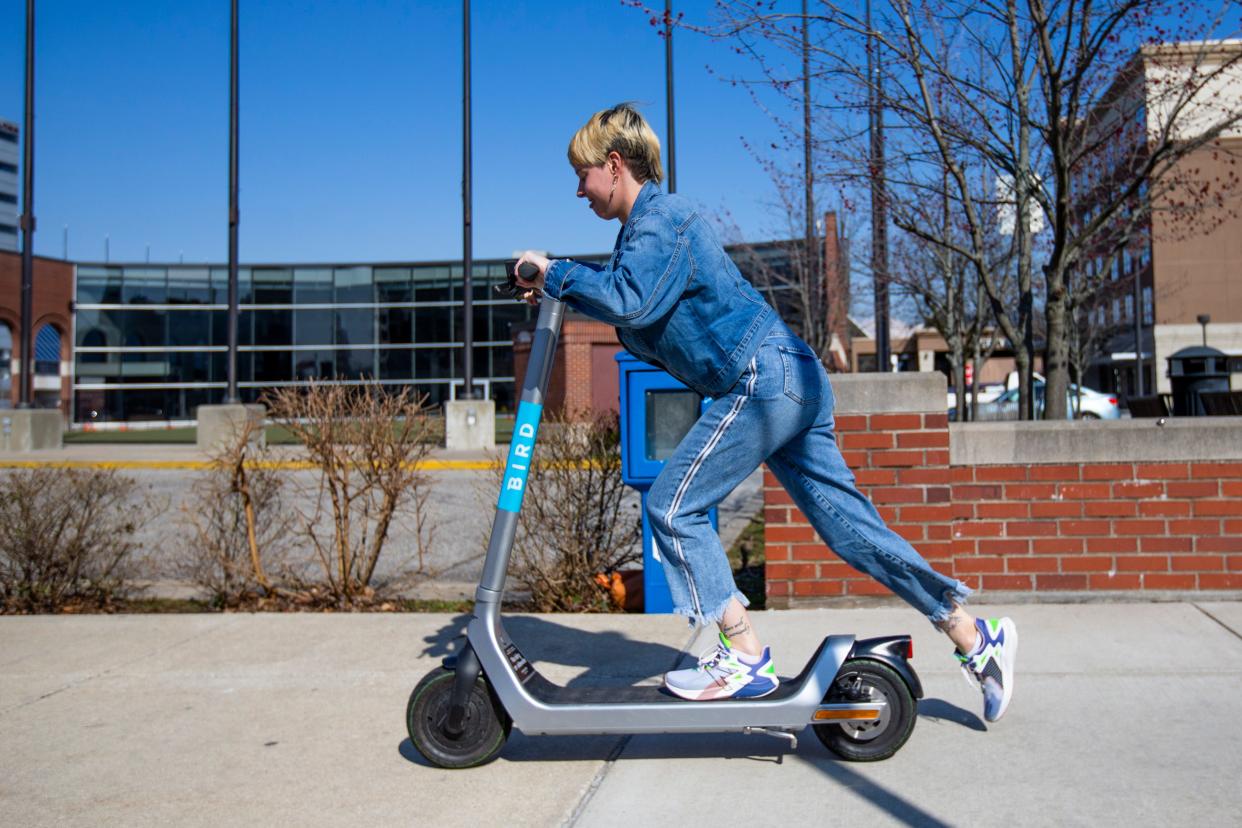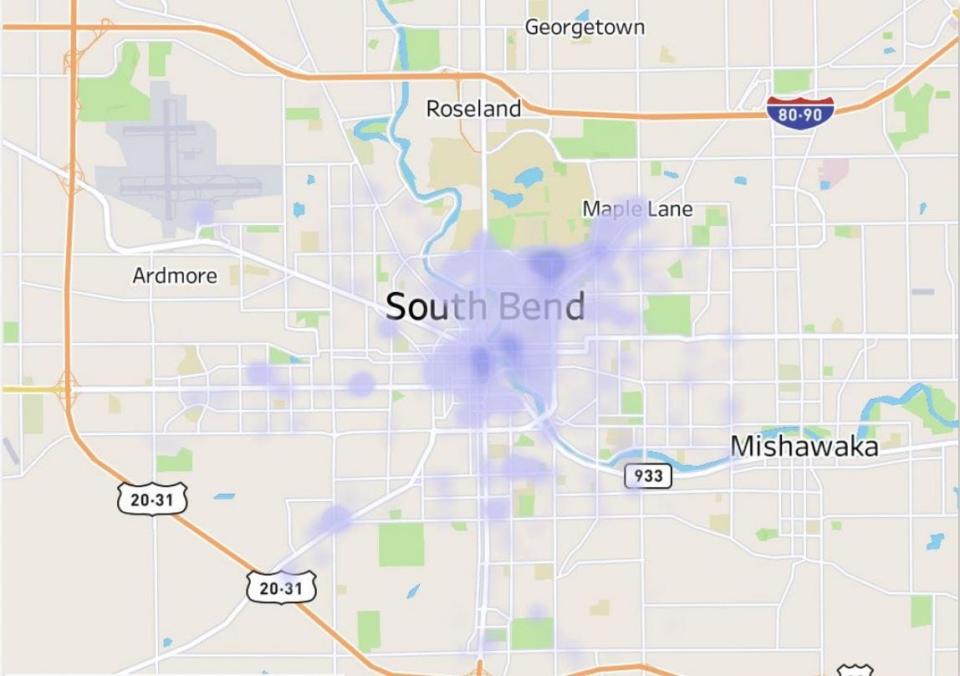South Bend renews contract through 2024 with Bird for electric scooters, bicycles

SOUTH BEND — Bird scooters and bicycles will be in South Bend through the end of 2024.
The Board of Public Works on Tuesday agreed to extend its agreement with Bird, the California-based shared mobility provider, for two more years.
More:What you need to know about e-bikes: 3 kinds, who rides them and local regulations
According to data shared by Bird, riders collectively traveled more than 90,000 miles across South Bend in 2022.
Data recorded near the end of last year shows that 16,159 riders used Bird devices for 45,220 rides. A rider map shows the most heavily trafficked areas were downtown, the East Bank area between Colfax and LaSalle Avenues, and Eddy Street Commons.

The company estimates that by traveling on its electric devices, local riders avoided carbon dioxide emission of 12.73 metric tons. A typical passenger vehicle emits about 4.6 metric tons of carbon dioxide per year, according to the Environmental Protection Agency.
Bird says its devices replaced 2.3 million car trips globally in 2022.
Founded in April 2017, Bird agreed to bring its devices to South Bend in September 2021. The company pays the city a $10,000 licensing fee each year to cover signage and enforcement costs.
This city is the first place in Indiana where the company launched its electricity-assisted bicycles. Electric scooters have become ubiquitous nationwide on college campuses and in urban areas.
A Bird bicycle has a slower top speed than a Bird scooter — 15.5 mph vs. 18 mph — but has almost twice the range at full charge. A bike can take you 56 miles, whereas a scooter lasts for about 30.
Both devices cost $1 to begin and 42 cents per minute of use. There’s also a 50-cent compliance fee.
As summer approaches:Booming crowds at Howard Park bring more nuisance calls and a debate on how to handle them
Bird devices are banned in Howard Park at the request of city leaders. University of Notre Dame administration has also prohibited Bird riders from campus. The company enforces bans with its geofence technology, which slows then stops a vehicle’s electric motor within specified boundaries.
Riders must stay off sidewalks and park appropriately without blocking paths. Bird also reminds people to wear a helmet. Riders can be charged for any damage beyond "normal wear and tear incurred in the ordinary use" of scooters and bikes, according to Bird's terms.
Email South Bend Tribune reporter Jordan Smith at JTsmith@gannett.com. Follow him on Twitter: @jordantsmith09
This article originally appeared on South Bend Tribune: South Bend renews deal with shared mobility provider Bird

